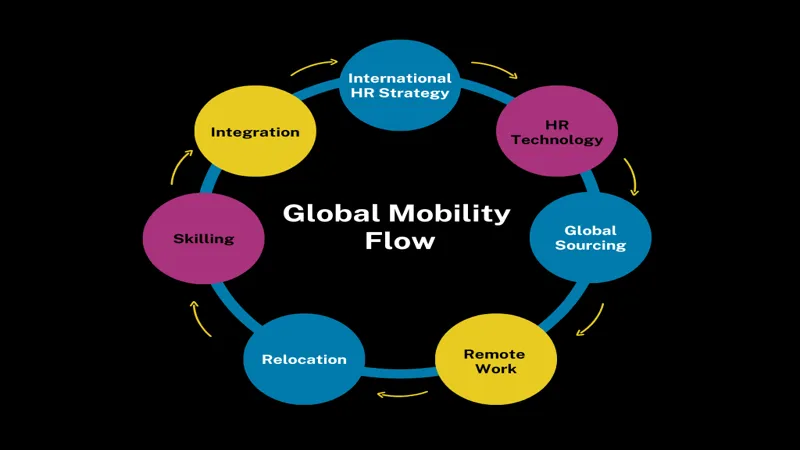In an increasingly interconnected world, the concept of global mobility has emerged as a cornerstone for economic growth and diplomatic stability. The United Nations General Assembly (UNGA) 2024 has reaffirmed this notion, declaring that the freedom to move is not only a fundamental human right but also vital for international cooperation, especially in the wake of the COVID-19 pandemic. As nations strive to rebuild their economies, particularly in developing regions, the challenge of enhancing travel systems becomes paramount. This introduction sets the stage for a deeper exploration of the role public-private partnerships (PPPs) play in modernizing border management and visa processing, ensuring that the complexities of international travel do not hinder progress.
| Category | Details |
|---|---|
| UN Prioritization | Global mobility is recognized as a human right and vital for economic growth and diplomacy. |
| Economic Recovery Focus | Rebuilding tourism and business travel is critical for recovery, especially in developing nations post-COVID-19. |
| Challenges in Travel | Rising security concerns and changing travel regulations complicate international movement. |
| Public-Private Partnerships (PPPs) | Governments are partnering with private sectors to improve travel systems and security. |
| Future Passenger Traffic | Expected to reach 20 billion by 2042, requiring better visa and border management. |
| VFS Global’s Role | World’s largest visa outsourcing provider, operates in 150+ countries. |
| Services Provided by VFS Global | Visa processing, biometric enrollment, and security services for 64 governments. |
| Key Benefits of VFS Global | ✔ Strengthens border security ✔ Streamlines visa processes ✔ Ensures compliance with security standards |
| Future of Global Mobility | Emphasis on international cooperation for safe and responsible migration under UN SDGs. |
| Goals of PPPs in Mobility | ✔ Enhance border security ✔ Strengthen tourism and business travel ✔ Improve humanitarian access |
Understanding Global Mobility
Global mobility is about how people move around the world for work, travel, or living. The United Nations believes it is very important because it helps countries work together and grow economically. After the COVID-19 pandemic, many nations are looking to improve travel to boost their economies. This means making it easier for tourists and business travelers to visit, which can help create jobs and support local businesses.
When countries focus on global mobility, they recognize that everyone should have the right to travel freely. This is especially crucial for developing nations that depend on tourism. By improving travel systems, these countries can attract more visitors, which helps them recover from the pandemic’s economic impact. A good travel system also encourages international cooperation, allowing countries to share ideas and work together on important issues.
The Importance of Public-Private Partnerships
Public-private partnerships (PPPs) are collaborations between governments and private companies. These partnerships are essential for improving global mobility, as they bring together the strengths of both sectors. Governments often have rules and regulations, while private companies have technology and innovative ideas. Together, they can create safer and more efficient travel systems that benefit everyone.
With the rising number of travelers, it’s important for countries to have effective visa processing and border security. PPPs can help modernize these systems by using advanced technology, making it easier and faster for people to travel. This collaboration ensures that countries can maintain strict security measures while also providing a smooth experience for travelers, which is vital for boosting tourism and trade.
VFS Global: A Key Player in Travel Solutions
VFS Global is a leading company that helps governments manage their visa processes and travel security. Operating in more than 150 countries, VFS Global provides essential services such as biometric enrollment and visa processing. This means they help people apply for visas and ensure that their personal information is secure, which is important for keeping borders safe.
By using advanced technology, VFS Global makes it easier for travelers to apply for visas. They help streamline the application process, which means less waiting time and fewer hassles for people wanting to visit other countries. This not only strengthens border security but also makes traveling more accessible for everyone, contributing to the overall goal of improving global mobility.
Challenges in Global Mobility Today
Despite the importance of global mobility, there are challenges that make it difficult for people to travel. Security concerns and changing travel rules can create confusion and delays at borders. This is especially true after the COVID-19 pandemic, where many countries implemented strict measures to protect their citizens. These challenges can discourage tourism and affect international business.
Governments are now working hard to balance safety with the need for open travel. They are looking for ways to improve their systems and make travel easier while still keeping people safe. Finding this balance is crucial for the recovery of the global economy and for ensuring that people can move freely across borders.
The Future of Travel and Cooperation
Looking ahead, the future of global mobility depends on cooperation between countries and the private sector. The United Nations encourages nations to invest in public-private partnerships to create better travel systems. This means working together to enhance security while also making it easier for people to travel for business or leisure.
As international travel demand increases, strategic partnerships will be essential. By combining the expertise of governments with innovative solutions from private companies, the world can create travel systems that are both safe and efficient. This collaboration will not only boost tourism but also strengthen diplomatic relationships between countries.
The Role of Technology in Enhancing Mobility
Technology plays a significant role in improving global mobility. Tools like biometric security systems and digital verification make it easier for governments to process visas and monitor borders. These advancements help ensure that travelers are who they say they are, which adds an extra layer of security to travel.
Moreover, technology can streamline the travel experience by providing travelers with online applications and real-time updates. This kind of innovation can reduce wait times and make the entire process more user-friendly. As technology continues to evolve, it will be pivotal in shaping the future of global mobility and enhancing safety for all.
Frequently Asked Questions
What is global mobility?
Global mobility refers to the ability of people to travel freely across borders for work, tourism, and other purposes, which is essential for economic growth and international cooperation.
Why is the UN emphasizing global mobility?
The UN highlights global mobility as a fundamental human right crucial for economic recovery, especially post-COVID-19, and for enhancing diplomatic relations among nations.
How do public-private partnerships (PPPs) help travel?
PPPs improve travel by combining government oversight with private sector technology, enhancing border security, streamlining visa processes, and ensuring compliance with global standards.
What role does VFS Global play in travel solutions?
VFS Global is a leader in visa outsourcing, providing secure visa processing and biometric enrollment services to strengthen border security for various governments worldwide.
How can countries improve border security?
Countries can enhance border security by investing in public-private partnerships that utilize advanced technology and efficient visa processing systems.
What are the benefits of enhancing global mobility?
Improving global mobility boosts tourism, facilitates business travel, and ensures better access for humanitarian efforts, fostering international cooperation and economic prosperity.
What does the future hold for global mobility?
The future of global mobility involves stronger partnerships between governments and private firms to balance security needs with the demand for seamless travel experiences.
Summary
The United Nations has emphasized global mobility as a crucial human right and vital for economic recovery and international cooperation, especially post-COVID-19. The UN General Assembly in 2024 highlighted the need to revitalize tourism and business travel, particularly in developing countries. However, growing security issues and changing travel rules complicate international movement. To address these challenges, governments are partnering with private companies to enhance travel systems. VFS Global, a leader in visa processing, supports these efforts by providing secure and efficient services, helping strengthen border security and improve visa applications for safer global travel.



